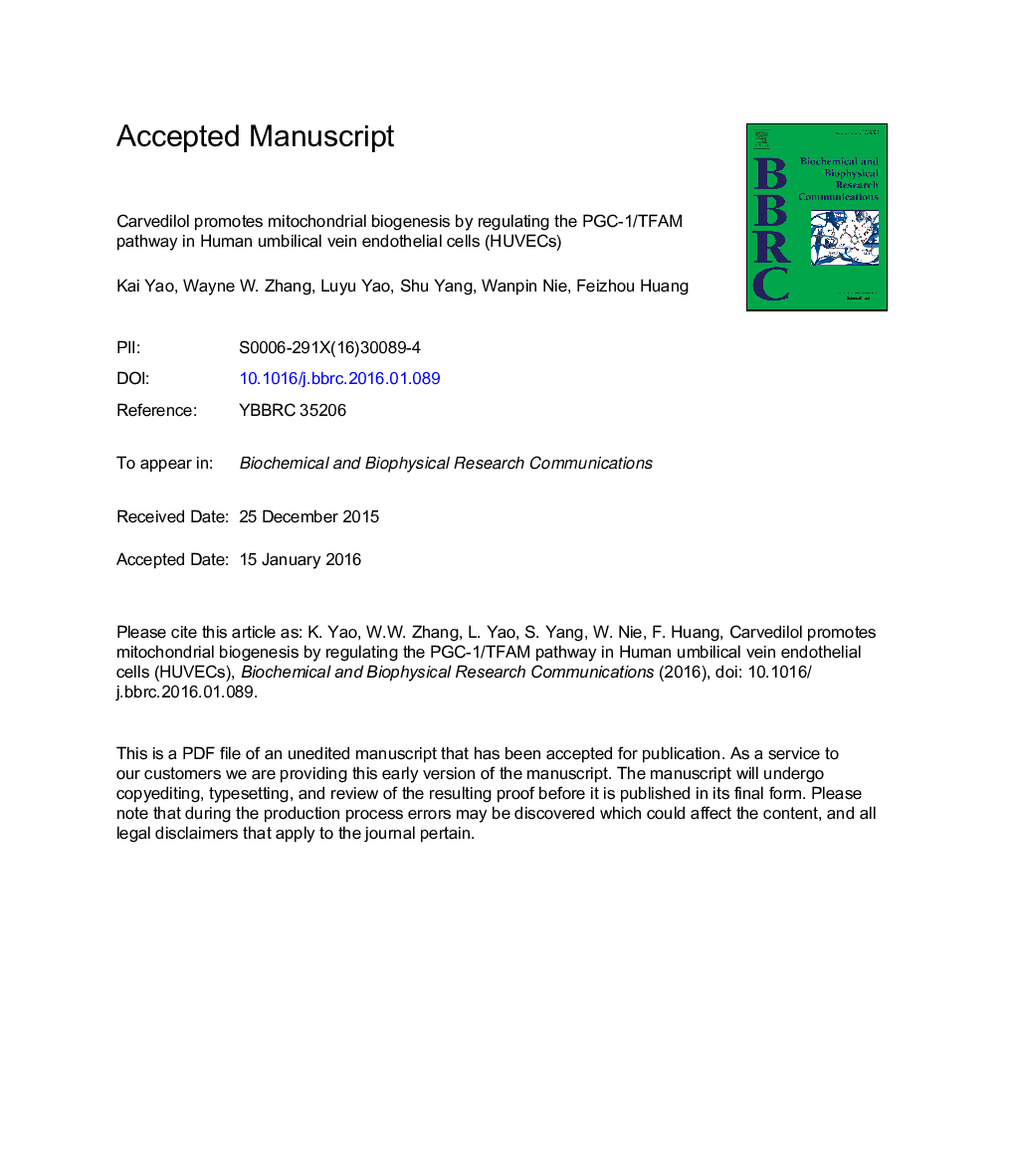| Article ID | Journal | Published Year | Pages | File Type |
|---|---|---|---|---|
| 8296531 | Biochemical and Biophysical Research Communications | 2016 | 21 Pages |
Abstract
Carvedilol, a third-generation and nonselective β-adrenoceptor antagonist, is a licensed drug for treating patients suffering from heart failure in clinics. It has been shown that Carvedilol protects cells against mitochondrial dysfunction. However, it's unknown whether Carvedilol affects mitochondrial biogenesis. In this study, we found that treatment with Carvedilol in HUVECs resulted in a significant increase of PGC-1α, NRF1, and TFAM. Notably, Carvedilol significantly increased mtDNA contents and the two mitochondrial proteins, cytochrome C and COX IV. In addition, MitoTracker Red staining results indicated that treatment with Carvedilol increased mitochondria mass. Mechanistically, we found that the effect of Carvedilol on the expression of PGC-1α is mediated by the PKA-CREB pathway. Importantly, our results revealed that stimulation of mitochondrial biogenesis by carvedilol resulted in functional gain of the mitochondria by showing increased oxygen consumption and mitochondrial respiratory rate. The increased expression of PGC-1α and mitochondrial biogenesis induced by Carvedilol might suggest a new mechanism of the therapeutic effects of Carvedilol in heart failure.
Related Topics
Life Sciences
Biochemistry, Genetics and Molecular Biology
Biochemistry
Authors
Kai Yao, Wayne W. Zhang, Luyu Yao, Shu Yang, Wanpin Nie, Feizhou Huang,
